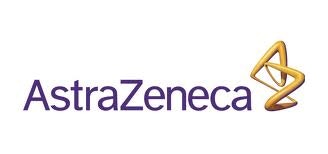Investing in biotech stocks is relatively risky amid the volatility of the market. There are many factors that can greatly affect share trends and price performance. Biotech companies go through a series of clinical trials toward FDA approval and market launch. Any update of the trial can potentially cause the shares to shoot up or go down. Competitors’ activities and drug issues can affect the shares, as well.
The triumphs and falls of the competitors are sometimes used by traders as a benchmark for trends and outlook. Adverse events impacting one drug will shake the shares of many pharmaceutical companies. It will not only pull down the shares of the company carrying the drug but also those of its peers. This further contributes to the volatility of biotech stocks.
Despite the high risk of investing in biotechs, you can minimize the risk by adding filters. One of them is choosing only large cap companies that are more stable. Aside from that, going for high-yielding dividend stocks can further improve your earnings or minimize your loss. Therefore, a good investing strategy would be to choose large cap biotech stocks with high yields. Here are some stocks that fit the bill.
AstraZeneca plc (ADR) (NYSE:AZN)
Currently yields 7.27% and plans to buy Omthera Pharmaceutical.
AstraZeneca plc (ADR) (NYSE:AZN) is one of the highest yielding biotech stocks. Its forward annualized dividend is $3.80 per share based on the latest semi-annual dividend of $1.9 per share. The annualized dividend has also been increasing year-over-year for the last five years.
AstraZeneca plc (ADR) (NYSE:AZN) plans to acquire Omthera Pharmaceutical for an estimated $443 million. This will be done via an Omthera stock purchase at a premium price of 88% of its May 24, 2013 closing price.
Omthera has several drug candidates in Phase III trials. In 2012, the company reported positive results for ESPIRIT and EVOLVE. These drugs are expected to get approval within the year. If the acquisition plan pushes through, this will further strengthen the portfolio of AstraZeneca plc (ADR) (NYSE:AZN).
Novartis AG (ADR) (NYSE:NVS)
Another good dividend stock, Novartis AG (ADR) (NYSE:NVS)’s annualized dividend is $2.53 per share, or 3.48%. Unlike many stocks that pay quarterly dividends, Novartis pays dividends once per year. The dividend amount has also been increasing every year since 2001.
Novartis AG (ADR) (NYSE:NVS) is a well-diversified firm with numerous subsidiaries. One of them is a global leader in eye care, Alcon. In April, Alcon announced FDA approval of Simbrinza Suspension, a medicine for the treatment of elevated intraocular pressure (IOP).
Novartis AG (ADR) (NYSE:NVS) further reported positive results for its breakthrough therapy for patients with ALK+ non-small cell lung cancer called LDK378. These developments will arguably boost investor confidence in the company.
GlaxoSmithKline plc (ADR) (NYSE:GSK)
Also a mega-cap biotech stock with attractive dividend yield, GlaxoSmithKline pays a forward annualized dividend is $2.2 per share, or 4.23%. Yearly dividend growth has beeen seen since 2009.
GlaxoSmithKline announced on June 1, 2013 that the Phase III clinical results for VOTRIENT (pazopanib) met the primary objective. This drug candidate was designed as a maintenance therapy in women with advanced epithelial ovarian cancer.
However, it also reported that its Phase III clinical trials for TYKERB/TYVERB (lapatinib) did not meet the primary endpoint. TYKERB/TYVERB is a combination drug with chemotherapy for advanced HER2-positive gastric cancer. Nonetheless, GlaxoSmithKline has many other drug candidates in its pipeline under every phase of the clinical trial. This keeps the company on solid ground in the future.
Pfizer Inc. (NYSE:PFE)
Strong dividend yield of 3.39%.
Pfizer’s current yield still outperforms the average yield of U.S. Treasuries. This makes it an attractive but safe investment medium. Pfizer’s annualized dividend is $0.96, evenly distributed per quarter at $0.24 per share. The annualized dividend has been increasing year-over-year since 2009.
Pfizer is trying to position itself as an innovative biopharmaceutical company. It recently announced its plan for a split-off of Zoetis, its animal health business. As part of its plan, the firm will be offering shareholders the option of a tax-free exchange (common stock of Pfizer can be exchanged for Zoetis shares). Pfizer aims to complete the full separation of Zoetis by 2014.
Nonetheless, the split-off of Zoetis gives Pfizer more focused operation. This move is expected to improve the performance of the company both in financials and in the stock market.
Merck & Co., Inc. (NYSE:MRK)
Attractive annual yield of 3.67%.
Merck is a large-cap biotech stock with a good dividend profile. The annualized dividend is $1.72, up from the fixed annualized dividend of $1.52 it paid during 2005 to 2010.
On May 21, Merck announced the $5 billion accelerated share repurchase agreement with Goldman Sachs Group. This is a sign that foretells the rising confidence of the management on the firm’s future success. It was also a demonstration of Merck’s commitment to deliver enhanced value to the shareholders.
As of May 6, 2013, Merck has about 23 drug candidates under Phase II clinical trials. It also has 15 drug candidates under Phase III trials and six drug candidates under review. With so many products in the pipeline, Merck remains stable with a lucrative future outlook on top of the attractive dividend yield.
Summary
The high volatility of the biotech and pharmaceutical market is also a good source of opportunities. You can make profits when shares soar after news releases on FDA approvals, successful product launches, and outstanding product sales. On the downside, shares will also plummet if drug candidates undergoing clinical trials are not approved by the FDA.
Strong market capitalization is just one of the filters to minimize your risk. You can add other filters like year-over-year revenue and net income growth, debt-to-equity ratio, and earnings per share, among others. Nonetheless, the above biotech companies are among those you can count on in terms of earnings from shares and dividends. They are also less risky compared to small- to medium-cap companies.
Nur Tarkak has no position in any stocks mentioned. The Motley Fool has no position in any of the stocks mentioned.
The article 5 Biotech Giants with Lucrative Dividend Yields originally appeared on Fool.com.
Copyright © 1995 – 2013 The Motley Fool, LLC. All rights reserved. The Motley Fool has a disclosure policy.





